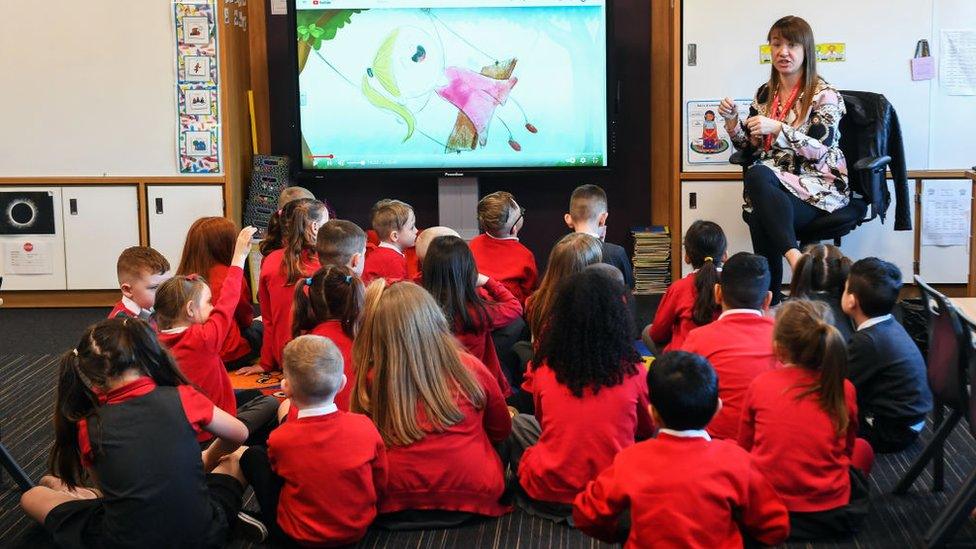Businesses hope for Scottish government isolation rule change
- Published
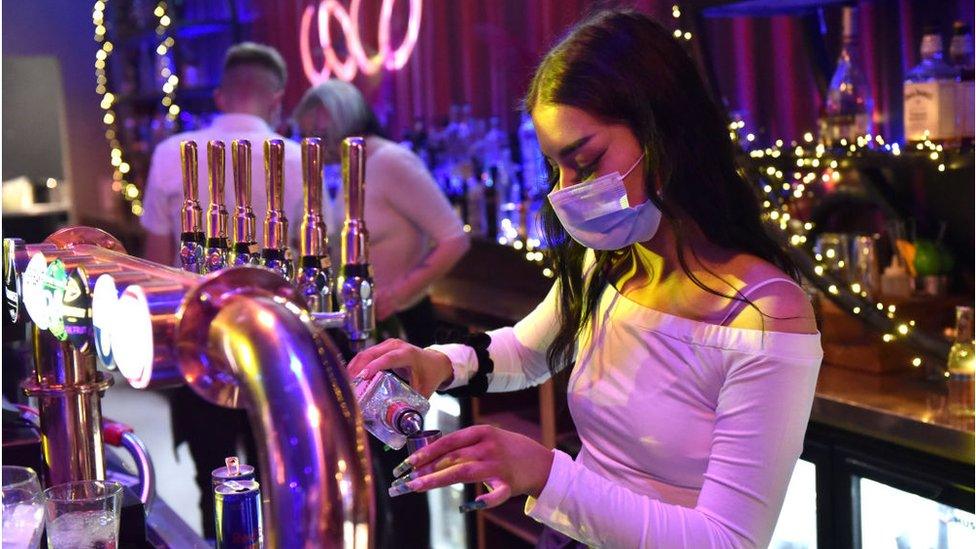
Hospitality businesses are struggling with large numbers of staff absences due to being identified as close contacts
Business owners are hoping for a change to the Scottish government's rules on self-isolation at Nicola Sturgeon's coronavirus update.
The current requirement is for close contacts of people who have tested positive to self-isolate for 10 days, external.
But current high rates of infection mean the rule is having a big impact on staffing levels in many places of work.
The first minister has said the government is reviewing rules for self-isolation and quarantine.
It has been suggested that the rules could change for people who are fully vaccinated who then come into contact with a positive case.
Ms Sturgeon is due to announce whether plans to further ease Scotland's Covid-19 restrictions will go ahead on 19 July.
Most legal restrictions are then scheduled to be removed from 9 August.
However, the country has recently been hit by a record-breaking wave of infections which has put pressure on NHS services.
Several health boards have cancelled planned surgeries due to rising Covid admissions and staff absences through infection and self-isolation.
A further 2,134 new cases of Covid-19 were reported on Monday - down on figures from recent weeks, but still with 11% of tests coming back positive.
Staffing challenge
Education Secretary Shirley-Ann Somerville last week said the government was also "looking very seriously" at whether it can make changes to self-isolation rules within schools.
As well as the NHS, hospitality has also been affected by rising numbers of staff having to self-isolate.
David Tracey, who runs the Manorview hotel group and is a member of the Scottish Hospitality Group, told BBC Radio's Good Morning Scotland programme the industry had taken its responsibility seriously and worked hard to make mitigations and anti-virus measures work.
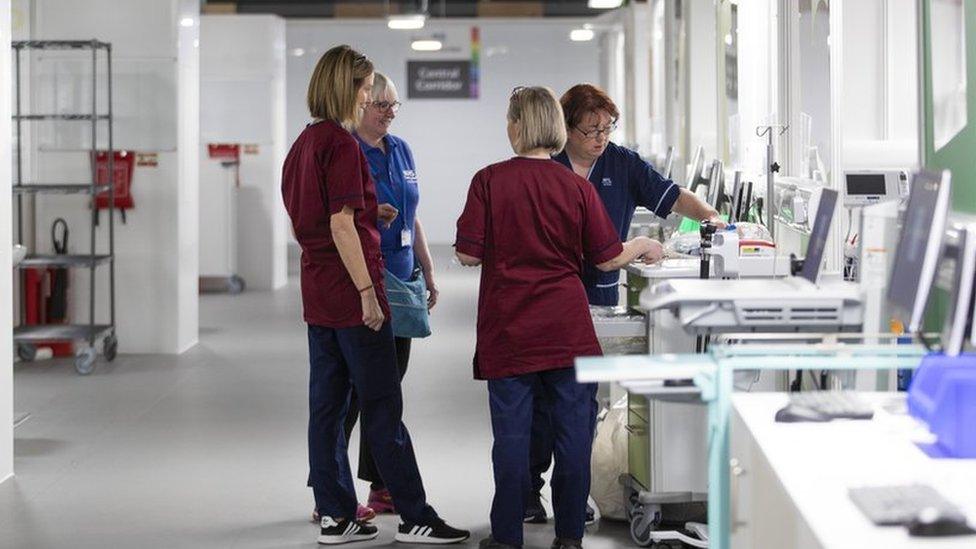
The NHS has been hit by large numbers of staff self-isolating
But he said he was hoping the first minister would do something about the requirement to self-isolate.
He said: "It's a big challenge for our industry.
"We have a number of team members self-isolating. And many are healthy team members who turn out not to have the virus and it is causing restrictions on our trading and has done for a number of weeks now. "
'Domino effect'
Tracey O'Connor, who owns two nurseries in Musselburgh, said: "I would like to hear if healthcare staff who have been double vaccinated are not required to self-isolate because this would extend to childcare services.
"We are struggling with staffing. Four of our staff are self-isolating this week and this is making it very difficult to provide a childcare service.
"If I can't offer that service parents can't work so its a domino effect. My staff can't work from home so I need staff in the building. We need to look at it very carefully now."
Edinburgh University public health expert Prof Linda Bauld said other countries had stopped asking fully-vaccinated citizens to self-isolate when they had come in contact with the virus and that it was a case of balancing the harms.
She said: "I you look internationally, Singapore has already taken this step. People double-vaccinated are not at zero risk of passing on or picking up the virus, but the risk is far reduced. If we move forward we can't have huge numbers self-isolating. "
'Burden of self-isolation'
At an update on 8 July, Nicola Sturgeon said that current self-isolation rules placed a burden on both individuals and business by forcing people to quarantine regardless of their symptoms or if they are infected.
She said: "Does vaccination allow us now to take a different approach, not to positive cases and not to people with symptoms, but to close contacts who are not symptomatic?"
"Does vaccination and testing allow us to reduce the burden of self-isolation? That is actively under consideration and I will say more about that shortly."
She also suggested changes were being considered in general terms and also in relation to certain occupations such as healthcare or hospitality.


Related topics
- Published13 July 2021
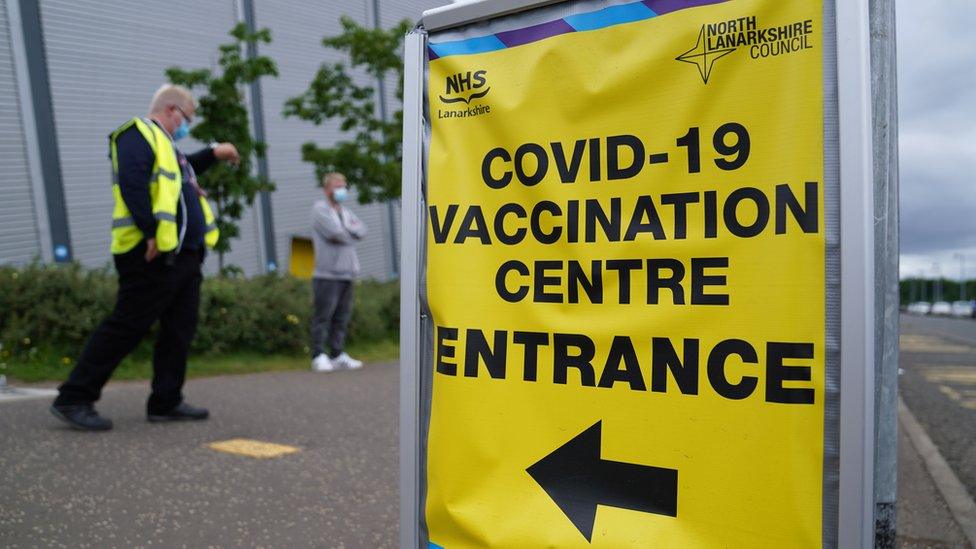
- Published12 January 2021
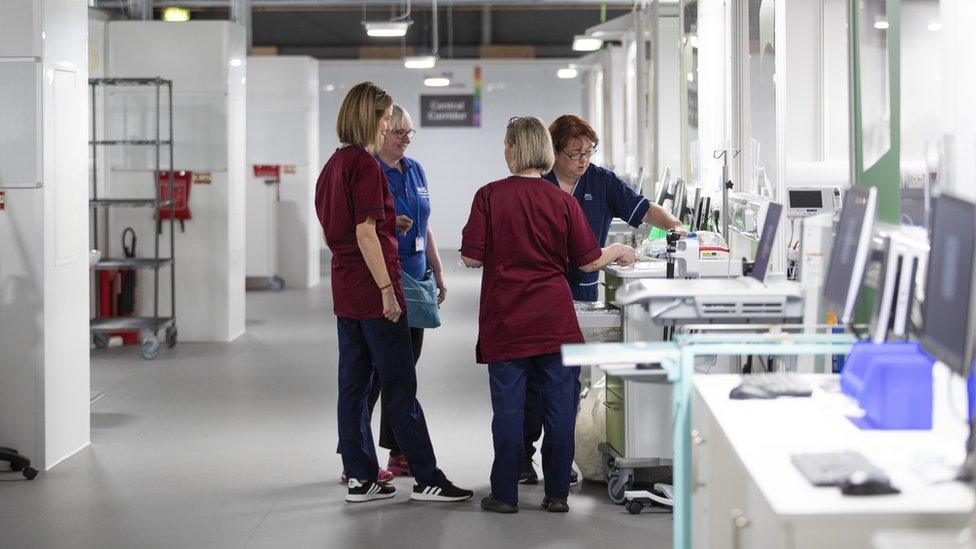
- Published7 July 2021
